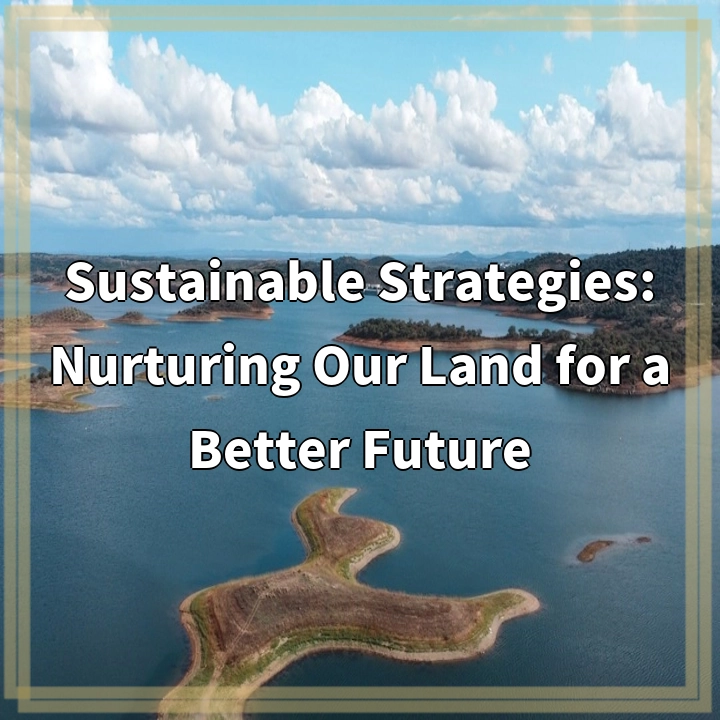
What is Sustainable Strategies: Nurturing Our Land for a Better Future?
Sustainable land management is a holistic approach aimed at utilizing and preserving our land resources in a way that ensures long-term environmental, economic, and social sustainability. It involves implementing practices that promote biodiversity, protect soil health, conserve water, and mitigate climate change impacts. By adopting sustainable strategies, we can ensure that our land remains productive and resilient for future generations.
Real-World Problems
Soil Degradation
One of the major problems associated with unsustainable land management is soil degradation. Activities like overgrazing, deforestation, and improper agricultural practices result in soil erosion, loss of organic matter, and nutrient depletion. This not only impacts agricultural productivity but also contributes to increased greenhouse gas emissions and decreases the capacity of soil to hold water.
Loss of Biodiversity
Unsustainable land management practices often lead to the destruction of natural habitats and the loss of biodiversity. Expansion of urban areas, monoculture agriculture, and deforestation are some of the key drivers of biodiversity loss. This poses serious threats to the delicate balance of ecosystems, as biodiversity plays a critical role in maintaining ecosystem services such as pollination, water purification, and pest control.
Water Scarcity
Inefficient water management practices, such as excessive irrigation or improper drainage, can lead to water scarcity and depletion of freshwater resources. Unsustainable water use can also result in salinization of soil, making it infertile for cultivation. This affects agricultural production and exacerbates water stress in areas already facing water scarcity challenges.
Climate Change
Sustainable land management is closely linked to climate change mitigation and adaptation. Unsustainable land practices contribute to greenhouse gas emissions, mainly through deforestation, land degradation, and improper waste management. Additionally, climate change impacts, such as increased temperatures, altered precipitation patterns, and extreme weather events, pose challenges in managing land sustainably.
Food Security
Unsustainable land management practices can disrupt food production systems, ultimately impacting food security. As the global population continues to grow, the demand for food increases, placing additional pressure on our land resources. Sustainable strategies are crucial to ensure that our land remains productive and capable of meeting the agricultural needs of a growing population.
In conclusion, sustainable land management plays a crucial role in addressing the problems associated with unsustainable land practices. By adopting long-term strategies that promote soil health, biodiversity conservation, water efficiency, climate change resilience, and food security, we can nurture our land for a better future.

Summarizing the Solutions
Implementing Sustainable Agricultural Practices
Adopting sustainable agricultural practices such as organic farming, crop rotation, and agroforestry can help improve soil health, reduce erosion, and minimize the use of harmful chemicals. These practices promote soil fertility, enhance biodiversity, and contribute to climate change mitigation by sequestering carbon in vegetation and soils.
Conserving and Restoring Natural Habitats
Protecting and restoring natural habitats, such as forests, wetlands, and grasslands, is crucial for preserving biodiversity and maintaining ecosystem services. Efforts should be made to limit deforestation, promote reforestation, and create protected areas to safeguard vulnerable species and ecosystems.
Improving Water Management
Water management techniques that enhance efficiency, such as drip irrigation, precision agriculture, and rainwater harvesting, can help reduce water consumption and combat water scarcity. Proper drainage systems can prevent salinization of soil, ensuring its fertility and productivity.
Adapting to Climate Change
Implementing climate-resilient strategies, such as diversified cropping systems, climate-smart forestry, and ecosystem-based adaptation measures, can help ecosystems and agricultural practices adapt to the impacts of climate change. This includes promoting the use of climate-resistant crop varieties and incorporating climate risk assessments in land management planning.
Promoting Sustainable Land Use and Planning
Adopting sustainable land use planning strategies, including zoning regulations, land restoration programs, and integrated landscape approaches, can help optimize land utilization and minimize conflicts between different land uses. This involves balancing urban development, agriculture, and conservation to ensure sustainable land use across different sectors.
By implementing these solutions, we can address the real-world problems associated with unsustainable land management practices. Through concerted efforts and collaboration, we can nurture our land for a better future, ensuring its productivity, resilience, and sustainability for generations to come.















